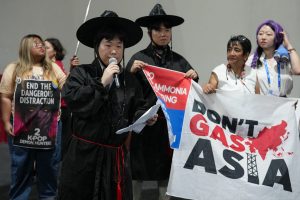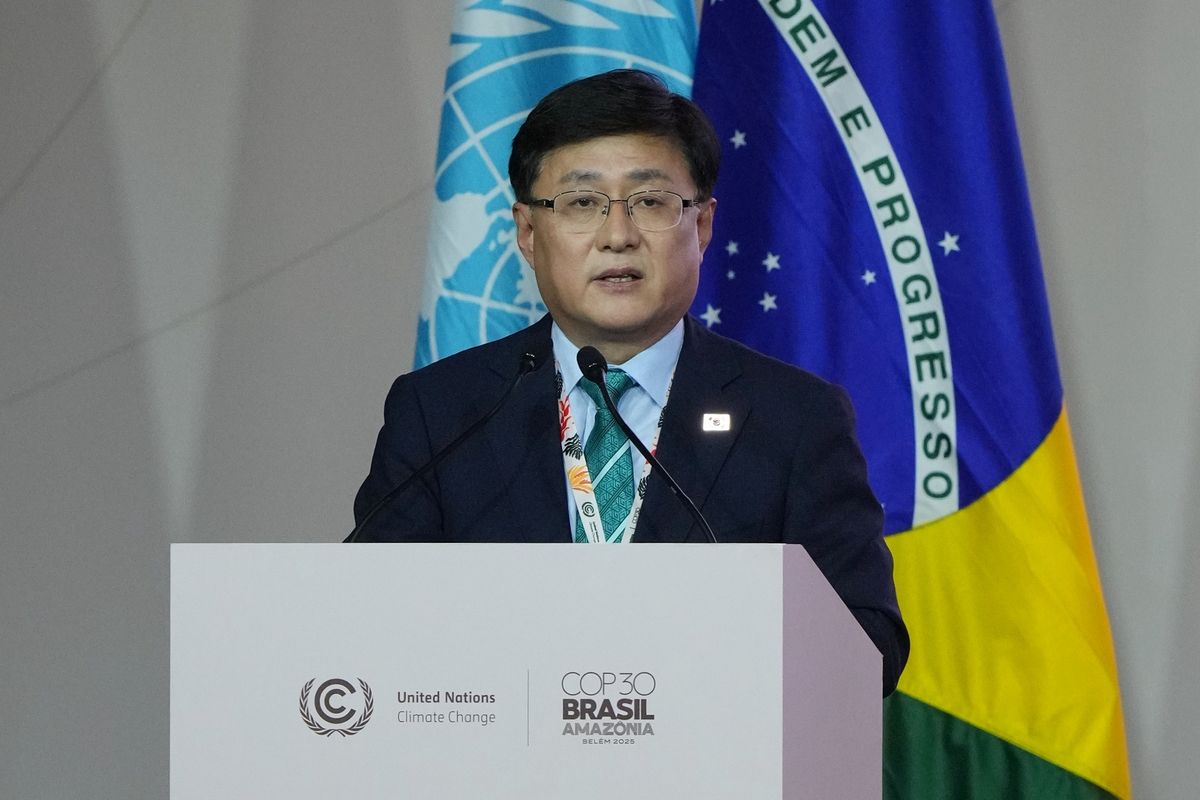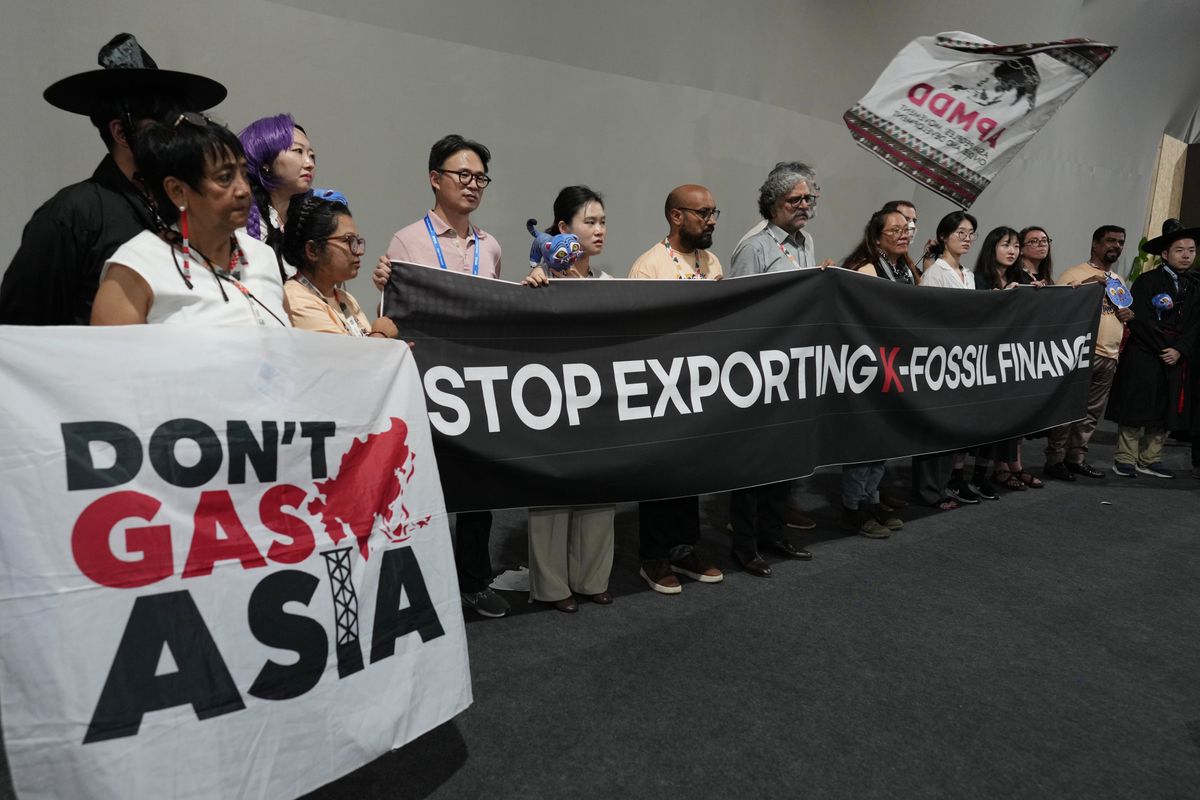BELEM, Brazil (AP) — Fans of K-pop have an intensity that’s turned the music into a global phenomenon. Some are determined to channel that energy into action on climate change.
Their push has been on display at United Nations climate talks in the city of Belem on the edge of the Brazilian Amazon, including costumed protests against fossil fuel funding that featured characters from “KPop Demon Hunters” — currently the most-watched film on Netflix with more than 325 million views.
Meanwhile, panels attended by high-ranking South Korean officials during the talks, known as COP30, strategized on how to mobilize the K-pop fanbase.
“It’s the first time K-pop fans have been introduced on a COP stage — not bands or artists — but fans,” said Cheulhong Kim, director of the Korean Cultural Center in Brazil, a branch of South Korea’s Ministry of Culture, Sports and Tourism. “K-pop fans are the real protagonists behind this culture that has the power to shape social and political issues.”
Korean pop genre’s massive fandom has rallied to support the U.S. Black Lives Matter movement, stop a deal between Hyundai and an Indonesian coal plant, and led rallies calling for the impeachment of former President Yoon Suk Yeol with a declaration of martial law last year.
While attending a K-pop event at COP30, South Korea’s Minister of Climate, Energy and Environment Kim Seong-hwan told The Associated Press that his ministry “will support K-pop fans and their artists so that K-pop can contribute to tackling the climate crisis.”
K-pop on the climate front
Banners reading “Export K-pop, not fossil fuels” filled part of the main hall at COP30 on Monday, as activists demanded South Korea cut its funding for foreign fossil fuel development.
Seokhwan Jeong, who organized the protest with the Seoul-based advocacy group, Solutions for Our Climate, alluded to a storyline from the demon hunters movie with a character leading a double life, hiding a secret.
“South Korea must overcome its dual stance — championing coal phase-out on the global stage while supporting fossil-fuel finance behind the scenes,” Jeong said. “It is time for the country to stop hiding and become a genuine climate champion.”
When organized, the fan base is a force to be reckoned with because of its size and intense loyalty, said Gyu Tag Lee, a professor at George Mason University Korea who studies the cultural impact of K-pop.
He said fans’ interest in social issues is partially due to direct actions from some bands. That includes Blackpink, which filmed video messages in support of the climate negotiations at COP26 in 2021.
Dayeon Lee, a campaigner with KPOP4PLANET, believes “cultural power is driving real climate action.”
“Our love extends beyond artists,” Lee said. “We care for each other across fandoms and borders. We are young people facing the same future, fluent in social media, keen to respond to injustice.”
The K-pop activism aligns with the Brazilian Portuguese concept of “mutirão” — a spirit of collective effort — that the COP30 Presidency is using as a rallying cry on the problem of climate change, according to Vinicius Gurtler, general coordinator for international affairs in Brazil’s Ministry of Culture.
More than 80 countries have voiced support for the “mutirão” call in what environmentalists have said “could be the turning point of COP30.”
“One of the best ways for us to do this is through music and through the youth,” Gurtler said. “I don’t think that we will create a better planet if we cannot sing and if we cannot imagine a better world.”
___
The Associated Press’ climate and environmental coverage receives financial support from multiple private foundations. AP is solely responsible for all content. Find AP’s standards for working with philanthropies, a list of supporters and funded coverage areas at AP.org.
___
This story was produced as part of the 2025 Climate Change Media Partnership, a journalism fellowship organized by Internews’ Earth Journalism Network and the Stanley Center for Peace and Security.
By ANTON L. DELGADO
Associated Press



